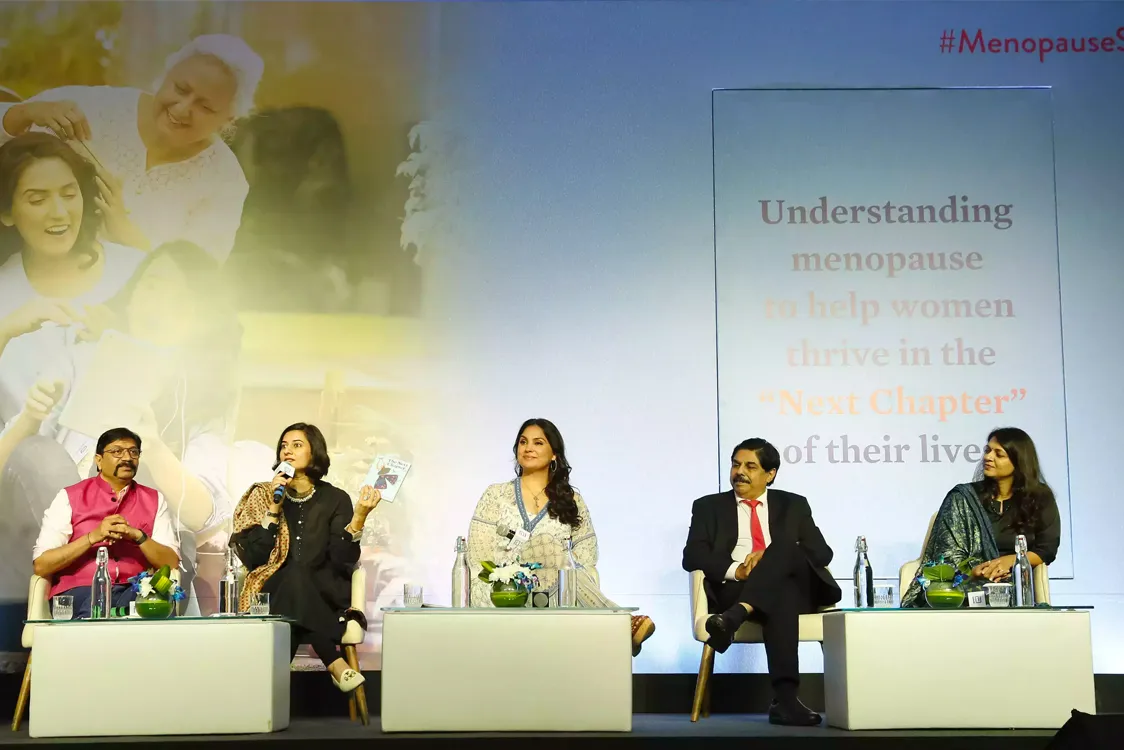The Abbott Ipsos survey took insights from more than 1,200 people across seven cities. The objective was to assess awareness levels, perceptions, and experiences women go through during menopause. The survey included women in the 45-55years age group and family members.
Mumbai: In honor of World Menopause Month in October, Abbott spearheads initiatives to enable women to experience this stage of life entirely. A recent survey by Abbott and Ipsos found that 87% of respondents believe menopause can significantly affect a woman’s daily life. There aren’t many conversations about this subject, though. Abbott wants to increase awareness of and support women going through menopause, which affects all women as they age.
Abbott is launching The NextChapter campaign to support conversations about menopause to increase awareness and encourage more women to get the support and care they may require. A collection of narratives sharing women’s distinct perspectives and personal experiences with menopause served as the launchpad for the Next Chapter campaign. Lara Dutta, the former Miss Universe; Dr. Hrishikesh Pai, the president of the Federation of Obstetric and Gynecological Societies of India (FOGSI), Dr. Tejal Lathia, a consultant endocrinologist at Apollo & Fortis Hospitals; and Shaili Chopra, the founder of SheThePeople all attended the launch of this collection of stories in India.
The Next Chapter, a collection of Abbott’s menopause stories, featuring real experiences and stories of menopausal women from four countries—India, China, Brazil, and Mexico, is also available as an e-book.
Considering menopause to be a taboo subject, Dutta stated, “Although menopause is a natural life process for women, it is something we often stay silent about. Many women are, therefore, unsure of what to anticipate. More women will feel empowered to understand this stage of life due to the increased conversation about menopause. This may inspire them to consult their friends, families, and physicians so they can not only treat their symptoms but also prepare for the future.
More than 1,200 respondents from seven cities provided insights for the survey. The survey evaluated women’s menopause experiences, perceptions, and awareness levels. Women between the ages of 45 and 55 were polled, along with family members.
Principal points:
82 % of respondents believe that menopause can impact the personal well-being of women, further affecting sexual life (78%), family life (77%), social life (74%) & work life (81%).
Nearly 48% of women reported having severe menopausal symptoms, which included heavy bleeding during periods (55%), depression (56%), scanty bleeding (59%), and pain during sexual activity (59%).
About 84% of respondents say menopause causes many changes in women and necessitates more family care.
A gynaecologist was consulted by 37% of women for menopause symptoms. In this group, 93% of the women visited a gynaecologist at least three months after first experiencing symptoms. Fifty-four percent of those who saw a gynaecologist went to the doctor more than seven months later.
According to 79% of respondents, women are uncomfortable talking about menopause with their family, friends, or coworkers, and 62% of women say they don’t want to “trouble their family with their health problems.”
76% of women said they had never heard their mothers or older sisters seek special assistance during menopause.
91% of the husbands surveyed believed that more women needed to talk about their menopause experiences to raise awareness.
According to 80% of respondents, it is more common to talk about infertility and contraception than menopause, indicating the taboo and stigmatized nature of the topic in India.
Dr. Pai elaborated on the survey’s gaps, saying that women must understand how their bodies change during menopause and how to manage uncomfortable symptoms to transition while protecting their long-term health and quality of life. We can make significant progress in educating women and eradicating the stigma associated with this life stage by sharing insightful information on the diverse symptoms and effects of menopause, particularly the experiences of Indian women going through this transition.
For many people, menopause can be difficult, according to Dr. Parag Sheth, Regional Medical Director for Abbott India. For women to better understand menopause, feel more at ease talking about it, and receive the support they may require to enjoy this stage of life fully, we are raising awareness about women’s menopausal experiences.





